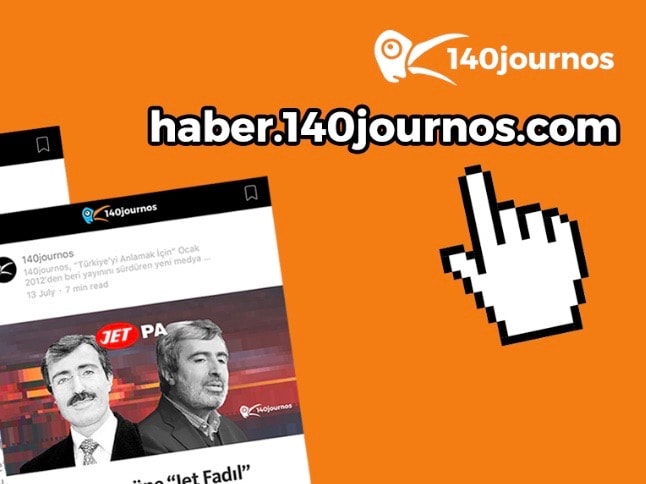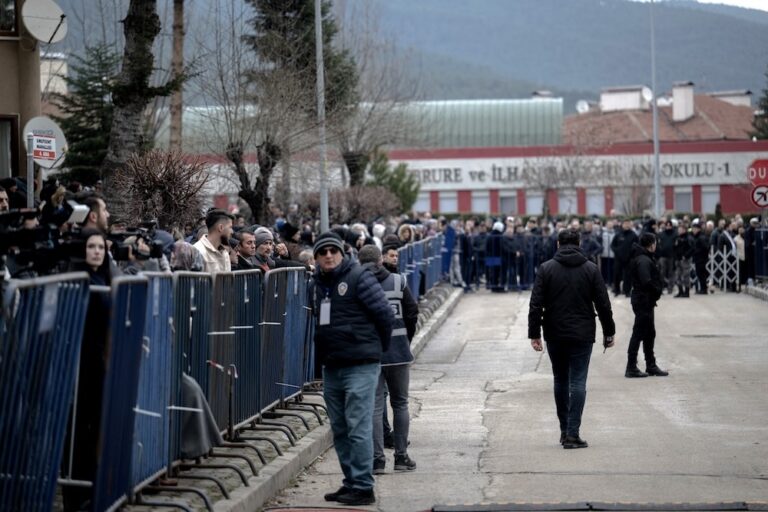"It is totally trust-based. In villages, people create a kind of collaboration as they do the harvest in the fields. We want you to create content, we will publish it, and we want to do this in every city, and on every issue, like villagers at harvest time."
This statement was originally published on freedomhouse.org on 12 September 2016.
Engin Önder is a cofounder of 140journos, a strikingly innovative media project in Turkey, where traditional media outlets face growing political and economic pressure from the government. Önder, who joined a panel of civil society activists earlier this month at the Mark Palmer Forum for the Advancement of Democracy, spoke with Freedom House in this interview.
Freedom House: How does 140journos work, and what is the organization’s goal?
Önder: The goal we had in the beginning and the one we have now are a little different, because we didn’t plan this project or see the need for it coming. It was an overnight response to the ecopolitics of media in Turkey. When we cofounded the project, we said, “Can we do anything about media? Do we have any options?” We had our phones in hand, we took to the streets, and we started covering protests on weekends.
I’m now 24, which means I was 19 when this began. Instead of going to school, I was going to hearings on weekdays. And I did not describe myself as an activist. We were doing this because we were angry about mainstream media. We thought we should share news events online. There was a need for quality media that gives the microphone to religious or ethnic minorities. We are trying to fill that gap. We are also trying to produce good journalism. And now our goal is to understand Turkey.
Why the hostility toward traditional media organizations?
Önder: Their corporate structures are problematic. Media companies in Turkey do not only do journalism. They are also involved in the construction business or other sectors, which means the companies have to get along with the government. You have to show you are a good boy. Then you get contracts.
Media have the responsibility of checking up on the pillars of the state, which is a big responsibility, especially in Turkey, where there are different cultural narratives, and media should have the role of creating a kind of coexistence among them. We didn’t think that mainstream media organizations did a good job of clearly informing the public.
In one way or another, those media organizations failed. They were politically biased and partisan. Is journalism digging deeper for truth so that people understand what is going on? Or is it molding truth according to your political bias? Certainly I’m not going for the latter.
How large is your staff? And since we’re no longer in the era of printing presses, how do you disseminate your stories?
Önder: We have a core editorial team of seven professionals. But we also have more than 500 people across Turkey who send us content regularly—volunteers, who do this work because they live in the countryside, see the problems, and feel responsible to let others know.
Our field is new media. We are good at it because it’s not only a communication channel, it’s how we live. It’s not just a tool for us. Our initial target is to reach Generation Y, the upcoming generation, people 18 to 35. We are in that generation ourselves, so we know what we want to consume. We know how to produce content. We know our pitfalls and our strong points. Right now, I’m proud to say, we have 100 million monthly impressions on social media.
We are very cautious. We are suspicious about every kind of information. We try to verify. Rather than accepting everything as fact, we do it the other way.
Tell us more about your 500 volunteer reporters.
Önder: It is totally trust-based. In villages, people create a kind of collaboration as they do the harvest in the fields. We want you to create content, we will publish it, and we want to do this in every city, and on every issue, like villagers at harvest time.
Two years ago, we started touring the country, especially the rural areas…. We work with Twitter, which pays us to tour. We tell people about Twitter as a great tool for keeping up with Turkey’s news agenda. We sign them up, and we also turn these people into our newsmakers…. In small cities, they know about everything. It gives us a very interesting news source. And then we started going to universities in a project that will continue the rest of the year. In case of need, we reach them, they reach us. They send us news directly. The greatest source, which no one can fake, is this network.
How do people find your news reports?
Önder: You start to follow us from somewhere. It depends what kinds of apps or websites you use, because we camouflage ourselves in social media platforms. Rather than saying you have to download an app for us, we are asking, where are you right now—Twitter, Snapchat, or even Tinder, a dating app. It’s where people are hanging out, and we give our content to people. It’s all news, by the way, things that people should know about what’s going on in their country.
Analyses and recommendations offered by the authors do not necessarily reflect those of Freedom House.



